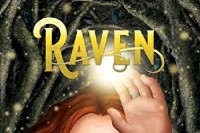
Will the PRH–S&S Combination Be Too Big?
publishersweekly.com – Sunday December 13, 2020

It seemed impossible that the acquisition of Simon & Schuster by Penguin Random House the day before Thanksgiving could be overshadowed by a bigger industry event, but that is what happened when book publishing’s long-running trade show and convention, most recently known as BookExpo, was canceled. As the buzz about the end of BookExpo has cooled down, industry members continue to digest the news of PRH’s pending purchase of S&S, the nation’s largest and third-largest trade book publishers, respectively.
When the acquisition was announced, the Authors Guild, the American Booksellers Association, and the Association of American Literary Agents (formerly the AAR) all issued statements that were critical of the deal. While each organization had a particular take, all shared one thing in common: they were concerned about the increasing consolidation within trade publishing.

Sign on the Dotted Line
By G. Miki Hayden
Instructor at Writer's Digest University online and private writing coach
firstwriter.com – Saturday December 12, 2020

I just sign blank contracts for books and whatever strikes me as a good idea is what I write about.
~ Roger Zelazny
Contracts seem daunting because the language they are written in is arcane and the contract terms are ones you’ll have to live with, probably a while beyond the life of the book. In this case, fear is a good thing. We should regard the contract with a certain amount of trepidation and not simply sign because we’re drooling with eagerness to be published.

At the start of this year, I could barely sell my writing. These 10 online classes, books, and podcasts helped me get published in The New York Times and land 2 literary agents.
businessinsider.com – Thursday December 10, 2020

At the beginning of 2020, I was half a year out of college and already burned out. I was rejected from dozens of writing jobs, barely published anywhere, and unclear as to what editors were looking for. As a first-generation immigrant, I wasn't sure I could navigate the hurdles of the American publishing world, and I wondered whether writing was a viable career choice at all.
10 months later, I've written for major news outlets including The New York Times and The Washington Post, and have even been signed on to write a book with two literary agencies: Folio in the US and Peony in the UK and Asia.

Éilís Ní Dhuibhne: The writer as an older human being
rte.ie – Friday December 4, 2020

I am a short story writer. I write in many other genres - novels, children's books, plays, non-fiction - but my favourite literary form is the short story. Why? I think it is partly a lazy reason. When I started writing, and publishing, way back in the 1970s, short stories were what I wrote. And although I moved on to novels in due course, I became more and more interested in finding ways to create short stories. I like writing them because they can be written quickly - the first draft can be scribbled down within a day or two. Even if the rewriting takes weeks, the heart of the story is pinned down fast.
That means I can catch the idea, the mood, the feel, of whatever inspiration is concerned and preserve it, before it flies away. A character in an Alice Munro story, Family Furnishings, compares writing to grabbing something out of the air. It’s like that with a short story. It’s like catching a leaf as it falls from a tree, putting it between the pages of a book, then examining it, reading it, finding out what it has to tell you. That may be a lot more than you thought when it came floating down, red or gold or russet, in the autumn air. But no matter how much you develop it, it will still be that leaf that you caught at a certain moment in time.
A novel is quite different.

The Monster Publishing Merger Is About Amazon
theatlantic.com – Thursday November 26, 2020

Penguin Random House purchasing Simon & Schuster is not the gravest danger to the publishing business. The deal is transpiring in a larger context—and that context is Amazon.
In 1960, Dwight Eisenhower’s attorney general, William Rogers, read the paper with alarm. He learned that Random House intended to purchase the venerable publisher Alfred A. Knopf. Rogers began making calls to prod his antitrust division into blocking the sale. In those days, monopoly loomed as a central concern of government—and a competitive book business was widely seen as essential to preserving both intellectual life and democracy. After checking with his sources, Rogers discovered that the merger would yield a company that controlled a mere 1 percent of the book market, and he let the matter drop.
Not so long ago, Democratic and Republican administrations alike wouldn’t hesitate to block a merger like the one proposed today, which intends to fold the giant publisher Simon & Schuster into the even more gigantic Penguin Random House. How big would the combined company be? By one estimate, it might publish a third of all books in the U.S. This deal is so expansive that it’s hard to find an author to write about it who isn’t somehow implicated. Based on the odds, I suppose, it’s not terribly surprising to reveal that I’m published by Penguin Random House.

Paranormal and romance- a shared magic by Tracey Shearer, author of Raven
femalefirst.co.uk – Tuesday November 17, 2020

Two years ago, when my literary agent had to suddenly retire to take care of her ailing hubby, I prepared to pitch to new agents at a local writers’ conference. Before I could join the pitch session, an agent buddy pulled me aside and told me not to tell anyone my book was a Paranormal Romance. Call it anything else, but not that.
We stood in a quiet hallway at the conference while I tried to process what she’d just shared. Then she leaned in close and whispered, “Tracey, Paranormal Romance is dead.”
I couldn’t hold back my disbelief, mouth dropping open, eyes blinking, seeing nothing. Paranormal Romance dead? How could that be when I see bookshelves, both physical and virtual, filled with books in this genre? Readers are hungry for these stories.
The agent went on to share that the Big 5 publishers weren’t actively acquiring Paranormal Romance. They had too much already on their author roster. So agents were steering clear of anything with even a whiff of Paranormal Romance. It would be a hard “no.”
I believed my friend, I truly did. But in my heart, I knew that nothing would ever kill this genre.

Making $$ Editing Freelance With Your Skills
By G. Miki Hayden
Instructor at Writer's Digest University online and private writing coach
firstwriter.com – Wednesday October 28, 2020

Writers can always use “extra” dollars, and these days the “extra” is very much necessary. Okay, we may not know how to do much other than push words here and there, but if we do that well, our abilities, honed over the years, may bring in the hoped-for bucks—freelancing as an editor for other writers. The nice thing about taking on projects this way is that we can sleep late and work at home in our sweats, another important point these days. Some of us do it, so why not you?

Hilary Mantel, Lee Child, Elizabeth Day and more novelists reveal their secret writing habits
inews.co.uk – Saturday October 17, 2020

Anthony Horowitz is two chapters away from finishing his latest “whodunnit” murder mystery and something is worrying him. If anything should happen to him before he has finished, how will anyone know whodunnit? This week he revealed that, when a book is in progress, he puts the name of the killer in an envelope to be opened by his wife, Jill Green, just in case.
“I am terrified I will die before I actually manage to [finish a book],” Horowitz said at the Cheltenham Literary Festival. “There will be a car crash or a trip going down stairs or something. This is such a fear for me, such a paranoia that I actually write the solution to my murder mysteries and I put them in an envelope to be opened in the event of my death and stick it in my desk.”

A Few Amateur Goofs to Avoid
By G. Miki Hayden
Instructor at Writer's Digest University online and private writing coach
firstwriter.com – Tuesday September 1, 2020

Your novel won’t be rejected just because the red flag is raised that you’re an amateur; however, the clues that you don’t know the rules of the road won’t endear you to agents, and unless the writing is otherwise good and the concept extraordinary, you may not be invited to join the agency gang. Have a read below to find out what errors to watch for.

Magazine Rejections and Learning to Love the Hate
splicetoday.com – Tuesday August 25, 2020

Many years ago, an editor at The Chicago Quarterly Review sent me one of the most colorful rejections I’ve gotten from a magazine: “I can’t think of a single person who’d want to spend thirty seconds with these morons,” meaning the characters in my short story but also, in a way, me.
It was a story about falling in love with a stripper in Missoula, titled “The Machinery Above Us,” and Eclipse Magazine took it some time after that. There were graphic parts in it and I noticed that the rejections came most fluidly from the Ivy and Ivy-adjacent literary journals on my submission A-list. The Partisan Review, The Paris Review, Doubletake, Story, and Boulevard rejected it with a quickness. They seemed to find the material distasteful.
Get the free newsletter | Submit a news item or article | Get Writers' News for your website





